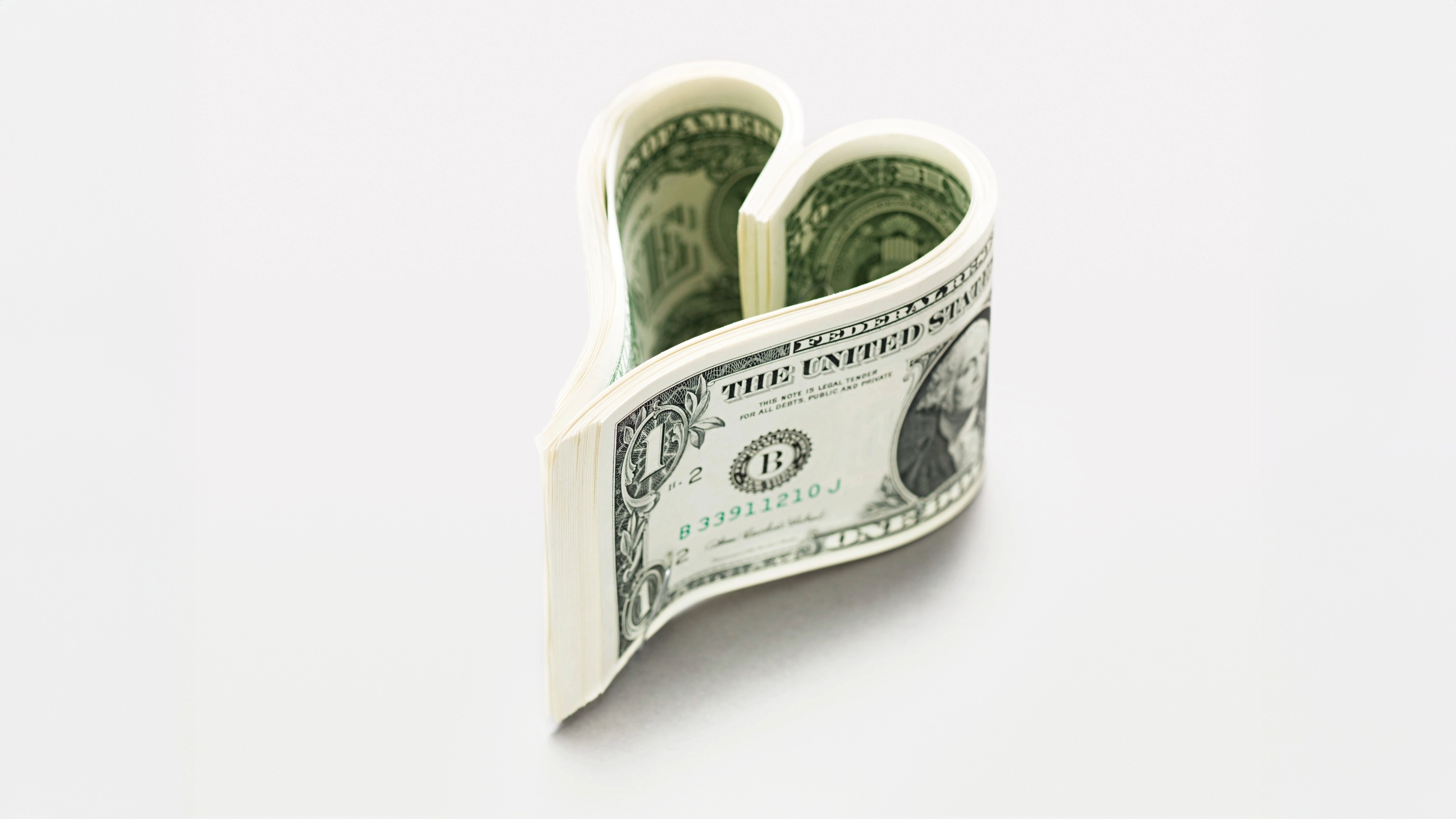5 Ways to Help Your Finances Recover from Coronavirus
Help alleviate some of your worries and strengthen your retirement outlook by doing these five things.

Profit and prosper with the best of Kiplinger's advice on investing, taxes, retirement, personal finance and much more. Delivered daily. Enter your email in the box and click Sign Me Up.
You are now subscribed
Your newsletter sign-up was successful
Want to add more newsletters?

Delivered daily
Kiplinger Today
Profit and prosper with the best of Kiplinger's advice on investing, taxes, retirement, personal finance and much more delivered daily. Smart money moves start here.

Sent five days a week
Kiplinger A Step Ahead
Get practical help to make better financial decisions in your everyday life, from spending to savings on top deals.

Delivered daily
Kiplinger Closing Bell
Get today's biggest financial and investing headlines delivered to your inbox every day the U.S. stock market is open.

Sent twice a week
Kiplinger Adviser Intel
Financial pros across the country share best practices and fresh tactics to preserve and grow your wealth.

Delivered weekly
Kiplinger Tax Tips
Trim your federal and state tax bills with practical tax-planning and tax-cutting strategies.

Sent twice a week
Kiplinger Retirement Tips
Your twice-a-week guide to planning and enjoying a financially secure and richly rewarding retirement

Sent bimonthly.
Kiplinger Adviser Angle
Insights for advisers, wealth managers and other financial professionals.

Sent twice a week
Kiplinger Investing Weekly
Your twice-a-week roundup of promising stocks, funds, companies and industries you should consider, ones you should avoid, and why.

Sent weekly for six weeks
Kiplinger Invest for Retirement
Your step-by-step six-part series on how to invest for retirement, from devising a successful strategy to exactly which investments to choose.
There were warning signs that the stock market might falter this year … but, let’s face it, there are always warning signs.
Most people expected volatility surrounding the presidential election. And we knew that record-setting bull run couldn’t last forever. Still, who could have predicted that a pandemic would upend every aspect of our lives, and throw both the job market and the stock market into a free fall?
If you’re wondering what’s next, you’re not alone. But here are some steps you can take now to lower your level of worry a notch, shore up your financial plan and help protect your financial future.
From just $107.88 $24.99 for Kiplinger Personal Finance
Become a smarter, better informed investor. Subscribe from just $107.88 $24.99, plus get up to 4 Special Issues

Sign up for Kiplinger’s Free Newsletters
Profit and prosper with the best of expert advice on investing, taxes, retirement, personal finance and more - straight to your e-mail.
Profit and prosper with the best of expert advice - straight to your e-mail.
1. Stay calm as you consider your next moves
You can’t always control or prevent what’s happening around you, but you do have control over how you respond to those events. Often, the worst mistakes investors make are based on emotion — whether it’s greed in good times or fear in scary times. Take some deep breaths and try to remain calm when you’re thinking about what your next steps should be.
Try to get past the day-to-day fears and treat this as a wake-up call if you need to adjust your financial plan. Maybe you should have a bigger emergency fund, for example, or your asset allocation is out of whack in terms of your timeline. Or maybe, just maybe, if you’ve been planning carefully, and you’re in better shape than you think.
2. Update your legal documents
People are often surprised when they realize how out of date their legal documents are — if they’ve bothered to create them at all. They’ve gotten married or divorced, had children, changed addresses or have assets they haven’t protected in any way. It’s not a fun job, but if you’re sitting bored at home, this is a good time to check your paperwork. (And if you’re on the frontlines of the COVID-19 fight, it’s even more important to set things right.)
Make sure your beneficiaries are current and that you have an appropriate amount of life insurance. And if you haven’t already done so, set up a power of attorney that designates who is legally allowed to make medical, financial and other personal decisions for you. Don’t wait until you’re sick and scared. You may be able to find a form online that suits your needs, but because of its importance and complexity (there are different types of POAs and the requirements vary from state to state), you might want to work with an attorney. Getting this done now could be more difficult while courts and legal offices are closed, so don’t delay.
3. Review your tax plan
Many taxpayers — and paid tax preparers — put their whole focus on the current year’s tax savings and ignore what could be in store down the road. Big mistake. The relatively low tax rates we’re seeing now, thanks to recent reforms, are set to expire at the end of 2025. And researchers are predicting taxes will be substantially higher in the future.
For baby boomers and younger generations who’ve been stashing away money for years in tax-deferred retirement accounts, this could be a disaster. The national debt is closing in on $25 trillion, and who knows where it will go from here, especially now that the government is providing financial relief for individuals and businesses affected by the coronavirus. Financial advisers already have been urging savers to make the most of today’s lower tax rates by moving all or some of their money from tax-deferred retirement accounts to a tax-free strategy, such as opening a Roth IRA. If your income is reduced in 2020 because of the pandemic, and you expect to land in a lower tax bracket as a result, this may be your best year to do a conversion, pay the taxes and set yourself up for tax-free distributions in retirement.
4. Fortify your retirement income plan
Because market volatility is always a risk (something some investors might have forgotten during our long bull run), it’s important to look at whether your guaranteed retirement income streams, such as Social Security or a workplace pension, will provide enough to cover your monthly expenses. If there’s a shortfall, you may have to find a way to close that gap, perhaps by working a few years longer, adjusting your spending or by purchasing an annuity.
If you address those income issues now, you likely won’t have to worry so much about market losses in the future.
5. Consider a risk realignment
Over the past 12 years, while the market has been on a tear, it’s likely been easy to say you’re the kind of investor who’s willing to take on risk. But with this downturn, maybe it’s time to analyze just how much risk you’re truly willing to deal with emotionally and how much risk you can afford.
There’s a great quote from Mike Tyson: “Everyone has a plan until they get punched in the mouth.” He was talking about boxing, of course, but it really applies to any part of life, whether the hit comes from a health problem, losing your job or business, or what’s happening to your investments. Hypothetically speaking, some of us have definitely been punched in the mouth by the coronavirus. If your plan failed you because you were too aggressive for your timeline, an analysis could give you an idea of how the risk in your portfolio matches up, realistically, with your goals.
If you’re feeling overwhelmed, don’t forget that help is out there if you need it. If you’re a DIYer, there are resources (like this website) that are full of information and tips. If you’re already working with a financial adviser — or you’re ready to &mdash you can take advantage of that person’s knowledge and experience. Either way, instead of throwing in the towel, why not help yourself by focusing on what you can do to recover from this unexpected blow?
Investment advisory services offered only by duly registered individuals through AE Wealth Management, LLC (AEWM). AEWM and Castle Wealth Group are not affiliated companies. 612165
Investing involves risk, including the potential loss of principal. Any references to protection benefits, safety, security and lifetime income generally refer to fixed insurance products, never securities or investment products. Insurance and annuity product guarantees are backed by the financial strength and claims-paying ability of the issuing insurance company. A Roth conversion is a taxable event and may have several tax-related consequences. Be sure to consult with a qualified tax adviser before making any decisions regarding your IRA. Appearances on Kiplinger.com were obtained through a paid PR program.
Kim Franke-Folstad contributed to this article.
Profit and prosper with the best of Kiplinger's advice on investing, taxes, retirement, personal finance and much more. Delivered daily. Enter your email in the box and click Sign Me Up.
Attorney and financial adviser Christopher J. Berry is the founder and CEO of Castle Wealth Group (www.castlewealthgroup.com) and author of "The Caregiver's Legal Guide to Planning for a Loved One with Chronic Illness."
-
 AI Unwind Takes 2% Off the Nasdaq: Stock Market Today
AI Unwind Takes 2% Off the Nasdaq: Stock Market TodayMarkets are paying more and more attention to hyperscalers' plans to spend more and more money on artificial intelligence.
-
 Big Change Coming to the Federal Reserve
Big Change Coming to the Federal ReserveThe Lette A new chairman of the Federal Reserve has been named. What will this mean for the economy?
-
 A Scary Emerging AI Threat
A Scary Emerging AI ThreatThe Kiplinger Letter An emerging public health issue caused by artificial intelligence poses a new national security threat. Expect AI-induced psychosis to gain far more attention.
-
 These Thoughtful Retirement Planning Steps Help Protect the Life You Want in Retirement
These Thoughtful Retirement Planning Steps Help Protect the Life You Want in RetirementThis kind of planning focuses on the intentional design of your estate, philanthropy and long-term care protection.
-
 Fixed Indexed Annuities and Bonds: The Perfect Match as Interest Rates Inch Lower?
Fixed Indexed Annuities and Bonds: The Perfect Match as Interest Rates Inch Lower?The prospect of more interest rate cuts has investors wondering how to enhance the bond portion of their portfolio. A fixed indexed annuity could be the answer.
-
 'Fee-Only' and 'Fiduciary' Are Not the Same: A Financial Pro Sets the Record Straight
'Fee-Only' and 'Fiduciary' Are Not the Same: A Financial Pro Sets the Record StraightThe terms fiduciary and fee-only are not interchangeable. Knowing the difference ensures investors get the advice and the consumer protection they need.
-
 I'm a Financial Adviser: This Is Why a Second (Gray) Divorce Could Cost You Big-Time
I'm a Financial Adviser: This Is Why a Second (Gray) Divorce Could Cost You Big-TimeDivorce isn't any easier the second time, especially if you've remarried later in life. Rushing to settle without proper advice can have serious consequences.
-
 A Matter of Trustees: Is Your Spouse the Best Person to Manage the Kids' Trusts?
A Matter of Trustees: Is Your Spouse the Best Person to Manage the Kids' Trusts?Naming your spouse as trustee can provide invaluable familial insight and continuity, but you should carefully weigh those benefits against potential risks.
-
 Passive Muni Investors: Is Your Strategy Missing the Mark?
Passive Muni Investors: Is Your Strategy Missing the Mark?Passive investments in municipal bonds are popular, but do they come at a cost? Two recent examples show why an active approach can be more favorable.
-
 Tied Up in Knots Over a Concentrated Stock Position? This Strategy Will Help You Unravel
Tied Up in Knots Over a Concentrated Stock Position? This Strategy Will Help You UnravelIf you've built significant wealth through stock in one company, deciding your next move may be petrifying. Use this decision-making framework to get unstuck.
-
 How to Put Your IRA to Work for Change and to Help the Next Generation, Courtesy of an Investment Adviser
How to Put Your IRA to Work for Change and to Help the Next Generation, Courtesy of an Investment AdviserUnhappy with the environmental and social impact of your investments? An impact fund that aligns your portfolio with your values could make all the difference.